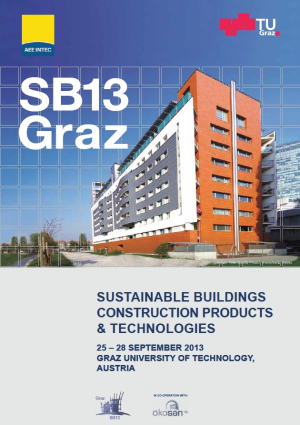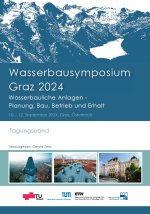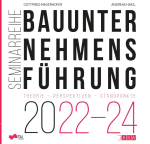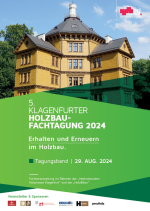Foreword
Meanwhile sustainable development has got to a place in the building and construction sector. Therefore it is time to transpose the paradigm change into practice on an overall basis. Whereas in Austria energy efficiency, use of renewable energy or reduction of greenhouse gas emissions were synonyms for sustainable construction we can notice today an increasing acceptance of the holistic approach, the necessity of considering ecology, economy and sociocultural aspects in the building sector simultaneously over the entire life cycle. The European Commission enforced this development by releasing numerous strategies, directives and regulations such as e.g. the Energy Performance of Buildings Directive, the Lead Market InitiativeSustainable Construction or the new Construction Products regulation with the new Basic Requirement 7 (Sustainable Use of Natural Resources). Parallel to these mandatory regulations, a suite of standards (e.g. European standards for sustainable construction) and non-mandatory building certificates particularly in the area of office and retail buildings emerged. This intensive supply ofinformation, however, leads to many more questions from clients and practitioners, especially on how buildings can be constructed and maintained in a sustainable way. With these facts in mind, we highly appreciate the initiative of CIB, UNEP, iiSBE and FIDIC of having established the series of SB conferences and are very happy to host the last one of the central European SB conferences in 2013 here in Graz. One of the most important starting points is the sustainable handling of the existing building stock therefore the SB conference in Graz addresses not only new buildings but also restoration and refurbishment. Hence, we combined the SB13 Graz conference with the ökosan conference, which is normally hosted by AEE INTEC (Institute for Sustainable Technologies). Ökosan is a symposium on ecologically sound refurbishment technologies and best practice examples and together with AEE INTEC we have a strong partner, which offers the possibility to merge theory and practice. Graz University of Technology and particularly the Faculty of Civil Engineering Sciences acted always as an interface in technology transfer between all stakeholders. Therefore, we do hope to contribute with this conference to a knowledge transfer in the scientific community, but especially with commercial partners from industry, planners and public authorities, in order to realise a sustainably sound built environment without overflow of rules and regulations. Standards and assessment tools should be accepted as support and assistance, not as a restraint. We are looking forward to your vital participation in the sessions and workshops and wish you a pleasant stay in the green heart of Austria.
Sustainable Buildings – Construction Products and Technologies;
Issue: Open Access E-Book
ISBN: 978-3-85125-301-6
Language: Englisch
Release date: November 2013
Foreword
Meanwhile sustainable development has got to a place in the building and construction sector. Therefore it is time to transpose the paradigm change into practice on an overall basis. Whereas in Austria energy efficiency, use of renewable energy or reduction of greenhouse gas emissions were synonyms for sustainable construction we can notice today an increasing acceptance of the holistic approach, the necessity of considering ecology, economy and sociocultural aspects in the building sector simultaneously over the entire life cycle. The European Commission enforced this development by releasing numerous strategies, directives and regulations such as e.g. the Energy Performance of Buildings Directive, the Lead Market InitiativeSustainable Construction or the new Construction Products regulation with the new Basic Requirement 7 (Sustainable Use of Natural Resources). Parallel to these mandatory regulations, a suite of standards (e.g. European standards for sustainable construction) and non-mandatory building certificates particularly in the area of office and retail buildings emerged. This intensive supply ofinformation, however, leads to many more questions from clients and practitioners, especially on how buildings can be constructed and maintained in a sustainable way. With these facts in mind, we highly appreciate the initiative of CIB, UNEP, iiSBE and FIDIC of having established the series of SB conferences and are very happy to host the last one of the central European SB conferences in 2013 here in Graz. One of the most important starting points is the sustainable handling of the existing building stock therefore the SB conference in Graz addresses not only new buildings but also restoration and refurbishment. Hence, we combined the SB13 Graz conference with the ökosan conference, which is normally hosted by AEE INTEC (Institute for Sustainable Technologies). Ökosan is a symposium on ecologically sound refurbishment technologies and best practice examples and together with AEE INTEC we have a strong partner, which offers the possibility to merge theory and practice. Graz University of Technology and particularly the Faculty of Civil Engineering Sciences acted always as an interface in technology transfer between all stakeholders. Therefore, we do hope to contribute with this conference to a knowledge transfer in the scientific community, but especially with commercial partners from industry, planners and public authorities, in order to realise a sustainably sound built environment without overflow of rules and regulations. Standards and assessment tools should be accepted as support and assistance, not as a restraint. We are looking forward to your vital participation in the sessions and workshops and wish you a pleasant stay in the green heart of Austria.
These could also be of interest to you
- Catalog
- New releases
-
Open Access publications

- Enhanced e-books
-
Series
- Akademische Reden an der Technischen Universität Graz
- Arbeitshilfen für die Praxis
- Archiv und Bibliothek
- Betonkolloquium
- Buddhist Architecture in the Western Himalayas
- BWL Schriftenreihe
- Electrical Power Systems
- Fachbücher Planung und Bau
- Facts & Figures
- Festschriften TU Graz
- Forschungsreihe IBBW
- Forum Technik und Gesellschaft
- Geodesy
- Immersive Learning Research Network Conference; Workshop, short papers, poster
- Institut für Gebäudelehre Jahrbuch
- International Brain-Computer Interface (BCI) Meeting
- LM.VM.2014
- Logistik Werkstatt Graz
- Materialien zu Schwerpunkten am Institut für Gebäudelehre
- Mathematical Modelling of Weld Phenomena
- Monographic Series TU Graz
- Monographic Series TU Graz|Advanced Materials Science
- Monographic Series TU Graz|Computation in Engineering and Science
- Monographic Series TU Graz|Production Science and Management
- Monographic Series TU Graz|Railway Research
- Monographic Series TU Graz|Reihe Fahrzeugtechnik
- Monographic Series TU Graz|Schriftenreihe des Instituts Betonbau
- Monographic Series TU Graz|Structural Analysis
- Monographic Series TU Graz|Techno- und sozioökonomisch orientierte Betriebswirtschaft
- Monographic Series TU Graz|Technoökonomie und industrielles Management
- Monographic Series TU Graz|Timber Engineering & Technology
- November Talks
- Proceedings of the International Brain-Computer Interface
- Schriftenreihe des Instituts für Baubetrieb und Bauwirtschaft
- Schriftenreihe des Instituts für Straßen- und Verkehrswesen
- Schriftenreihe des Instituts für Wohnbau der TU Graz
- Schriftenreihe zur Wasserwirtschaft
- Science, Technology and Society online
- Seminarreihe Bauunternehmensführung
- Studien zur Architektur | TU Graz
- Textbook Series
- Transform Industry: Guiding the transformation of SMEs
- TU Graz Jahresbericht | Annual report
- TU Graz people
- TU Graz Research
- VKM-THD Mitteilungen; IVT-Mitteilungen ab Bd. 100
- Authors
- Sale
Contact
Verlag der
Technischen Universität Graz
Technikerstraße 4
8010 Graz, Österreich
UID(VAT) ATU 57477929
contact person
Gabriele Groß
Tel.: +43(0)316 873 6157
E-Mail: verlag [ at ] tugraz.at
Privacy Overview
Necessary cookies are absolutely essential for the website to function properly. These cookies ensure basic functionalities and security features of the website, anonymously.
| Cookie | Dauer | Beschreibung |
|---|---|---|
| cookielawinfo-checkbox-analytics | 11 months | This cookie is set by GDPR Cookie Consent plugin. The cookie is used to store the user consent for the cookies in the category "Analytics". |
| cookielawinfo-checkbox-functional | 11 months | The cookie is set by GDPR cookie consent to record the user consent for the cookies in the category "Functional". |
| cookielawinfo-checkbox-necessary | 11 months | This cookie is set by GDPR Cookie Consent plugin. The cookies is used to store the user consent for the cookies in the category "Necessary". |
| qtrans_front_language | 1 year | This cookie is set by qTranslate WordPress plugin. The cookie is used to manage the preferred language of the visitor. |
| viewed_cookie_policy | 11 months | The cookie is set by the GDPR Cookie Consent plugin and is used to store whether or not user has consented to the use of cookies. It does not store any personal data. |
| woocommerce_cart_hash | session | This cookie is set by WooCommerce. The cookie helps WooCommerce determine when cart contents/data changes. |
Analytical cookies are used to understand how visitors interact with the website. These cookies help provide information on metrics the number of visitors, bounce rate, traffic source, etc.
| Cookie | Dauer | Beschreibung |
|---|---|---|
| _pk_id | 1 year 27 days | Required for the operation of Matomo, an analysis tool that tracks and analyzes user behavior. |
| _pk_ref | 13 months | Required for the operation of Matomo, an analysis tool that tracks and analyzes user behavior. |
| _pk_ses | 30 minutes | Required for the operation of Matomo, an analysis tool that tracks and analyzes user behavior. |
Other uncategorized cookies are those that are being analyzed and have not been classified into a category as yet.
| Cookie | Dauer | Beschreibung |
|---|---|---|
| yt-remote-connected-devices | never | No description available. |
| yt-remote-device-id | never | No description available. |






